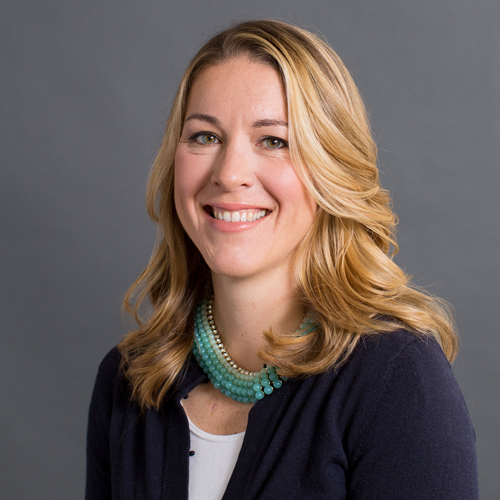Annette Isaacson grew up in San Juan, Puerto Rico, where her parents took her schooling very seriously. They worked hard to provide her with a private school education, which ended up being a stepping-stone to Tufts University. She eventually made her way to Columbia Law School, where she received the legal degree that enabled her to do life-changing pro-bono work—first at Latham & Watkins in Chicago, and now at JPMorgan Chase.
Latham & Watkins placed a great deal of importance on volunteering, and Isaacson was more than happy to contribute her talents to the National Immigrant Justice Center (NIJC), a thirty-year-old organization that provides direct legal services to and advocates for immigrants, refugees, and asylum-seekers. She kept in touch with the organization as she transitioned into a new role as assistant general council for JPMorgan Chase, but it wasn’t until President Obama announced Deferred Action for Childhood Arrivals (DACA) during the summer of 2012 that she decided to return to the pro-bono work she loved so much as an associate.
Isaacson reached out to NIJC in 2012 to offer help. Though her work at JPMorgan Chase is unrelated to immigration matters, her skills as an attorney and her deep-seated desire to help Chicago’s undocumented immigrant community inspired her to reconnect with the organization.
Initially, DACA was only available to young, undocumented immigrants under the age of thirty-one as of June 15, 2012, and those who entered the United States before the age of sixteen. At the end of 2014, however, President Obama’s executive action expanded forms of temporary relief for millions of immigrants and their families. In part, it expanded the terms of DACA, offering a three-year reprieve from deportation, as well as work authorization and the ability to obtain a driver’s license in certain states. The end of 2014 granted more than six hundred thousand individuals deferred action.
“I personally know a lot of undocumented immigrants. I know them to be hard-working, honorable people, and I can’t imagine what it would be like to live in constant fear of deportation.”
“As a Latina living in a major city like Chicago, I personally know a lot of undocumented immigrants. I know them to be hard-working, honorable people, and I can’t imagine what it would be like to live in constant fear of deportation,” Isaacson says. “So many are young people who came here with their families when they were children. They have little recollection of their country of origin. They are essentially Americans, and they should be given a path to citizenship or permanent residence, but until then, I feel it’s important to help any way I can.” And her help—and the help of other attorneys—is desperately needed.
Many undocumented immigrants don’t have the resources for legal counsel. They are also preyed upon by those posing as legal professionals, making them more vulnerable to abuse and exploitation. NIJC emphasizes public education, offering legal defense services and workshops that focus on noncitizens’ legal options and the immigration process.
NIJC’s executive director, Mary Meg McCarthy, says Isaacson and JPMorgan Chase have been fantastic partners and have created a model pro-bono clinic that the organization hopes to replicate nationally. “Annette’s leadership in ensuring access to justice for immigrants in our community has made a significant difference in the lives of individuals and their families, as well as served to inspire other attorneys to provide pro-bono legal services,” McCarthy says.
This could not be more important to Isaacson, who has seen firsthand the drastic change that DACA can make in the lives of immigrants. The attorney says the expansion to DACA will be equally impactful, but she’s quick to point out it’s not a permanent solution.
“The problem is that while the executive action is very helpful, it doesn’t address the root of the issue,” the assistant general counsel says. “Many of the people I encounter through NIJC have been here for decades, but there is no path for them to even apply for citizenship or permanent residence. While DACA affords them protection from deportation for three years, it does not enable these immigrants to permanently come out of the shadows and live and work without fear.”
Until undocumented immigrants are presented with the opportunity to fix their legal status permanently, she says, the immigration system will remain broken.
“There are twelve million undocumented people here. They are an important part of our society, and they have been making major contributions,” she says. It seems obvious to Isaacson that those who are capable and want to contribute to this country should be offered a path that empowers them to do so. “We’re doing undocumented immigrants—and our country—a great disservice by not enabling them to work without fear.”

